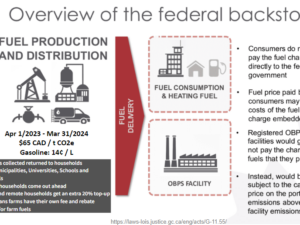Answer: The Energy Innovation and Carbon Dividend Act, the first bipartisan climate legislation in a decade, has been reintroduced as H.R.763. [1] It’s based on a CCL framework to account for the hidden costs of burning fossil fuels. If enacted into law, this policy will drive down greenhouse gas (GHG) emissions by stimulating American innovation and ingenuity. Scientists and economists alike [2,3] say it’s the best first step to reduce the impact of global warming. Here’s how it works: Because the steady increase in fossil energy prices is predictable, it will stimulate invention and investment to cut carbon in myriad ways. Consumers will know they can count on increasing dividends to help them through the transition to a world of clean, energy-efficient goods and services. Related: Comparing H.R.763 with Carbon Fee and Dividend (CCL USA)
The Energy Innovation and Carbon Dividend Act in the USA
Question: What’s in the bill?
The Energy Innovation and Carbon Dividend Act in the USA
Home » CCL Canada News » The Energy Innovation and Carbon Dividend Act in the USA











